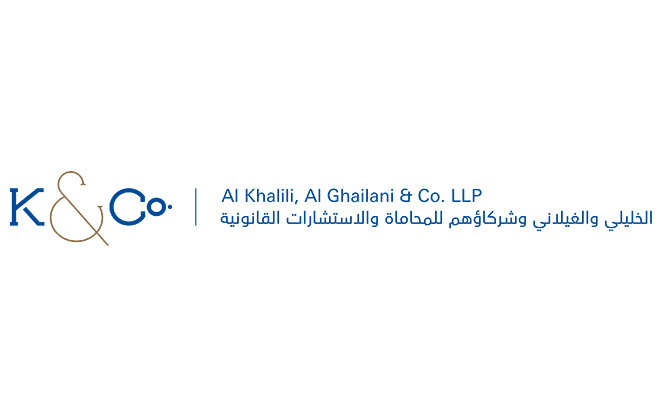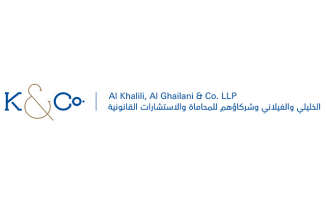The Sultanate of Oman is proudly recognised as a nation founded on political stability with exceptional prospects for economic growth. Much like the rest of the gulf region, Oman and its business sector is far more than simply ‘developing’ and has been dedicated to the diversification of its economy away from oil production. Oman has undertaken a complete renovation of its laws, regulations and policies relative to commercial activity in the aim of creating a more accessible and fluid environment for economic development and foreign investment. Particularly within the last five years, the nation has welcomed a number of legal amendments that aim to uplift the nation’s growing economy, facilitating the introduction of new industries and opportunities.
Amending the Foreign Capital Investment Law and Oman’s business sector
Oman has made notable amendments within its laws to facilitate foreign investment, relaxing restrictions with the promulgation of the amended Foreign Capital Investment Law issued by Royal Decree 50/2019 (FCIL). Since becoming a member of the World Trade Organization in 2000, Oman had restricted all foreign ownership to 70% relaxing previous limitations of 49% under the initial establishment of the FCIL issued in 1994. Repealing the 1994 version, the FCIL Oman now allows for 100% ownership on all investment ventures and removing the requirement of having an Omani shareholder to sponsor shares and removing minimum share capital requirements. Additionally, the FCIL complements a number of provisions outlined under the new Commercial Companies Law issued by Royal Decree 18/2019 (CCL) discussed in further detail below.
The above amendments do not override the requirement on foreign investors to ensure appropriate registration and licensing. It should be noted that non-Omanis looking to establish business operations are still required to establish a formal entity or utilise a local commercial agent. Nevertheless, all mandatory licensing and registration procedures required by FCIL to operate a business in Oman have subsequently been restructured to a single, online, fast-track system managed under one authority, the Investment Services Centre of the Ministry of Commerce, Industry and Investment Promotion (MOCIIP). Oman’s government has placed specific emphasis on ensuring the ease of obtaining all required licensing through its ‘single approval’ policy in key industries required for development projects in special industries such as renewable energy, ports, public infrastructure. The FCIL provides a list of incentives inclusive of special provisions for the establishment of investment in less urbanised areas in Oman.
As a law firm, have we found these amendments have made an impact on the legal process behind establishing foreign investment in Oman?
We believe the changes adopted by FCIL have greatly attracted the influx of foreign investment in the Sultanate. Easing the process and allowing for 100% ownership without the need of a local partner allowed foreign investment full autonomy in the ownership, beneficial interest, and decision making of their investments in Oman. That being said, FCIL have further stipulated that each foreign investment is to be complemented with a project description and adherence to the relevant rules and regulations in place in Oman. The governmental fees for establishing range between USD $7,800 and USD $9,500. As practitioners, K&Co. have noted the ease of process and the time saving implementations in place and have greatly promoted foreign direct investment in Oman.
How does Oman overcome competition in the region in your opinion?
Oman understands the competition it faces in the rising GCC region, and to attend to such competition and to overcome them, the Omani government recently established Invest Oman, creating a one-stop-shop official investment marketing initiative for the Sultanate, managed by MOCIIP. All governmental requirements for high value investments are finalised in this initiative, ensuring the ease of investment, and overcoming any competition faced in the region. K&Co. regularly advises clients with the intention of investing in Oman to utilise such platforms and make use of the benefits that are provided to create an attractive environment for investment.
Yet, there are still a number of restrictions to consider. Notably, the ‘Prohibited Activities’ list outlined under Ministerial Decision 209/2020 Determining the List of Activities That Are Prohibited to Be Undertaken by Foreign Investment. Certain industries remain protected for Omani entities only and includes activities from manufacturing and sale of traditional apparel to the establishment of real estate brokerages. Considering that Oman follows a single regulatory approach, laws often take time to be officially rendered. As a result, there remains uncertainty on whether specific historical restrictions issued under separate legislations pre-dating the FCIL remain applicable, such as higher investment requirements for certain industries. In all such cases, it remains best to obtain confirmation from the relevant authority, MOCIIP. Investors should be sure to maintain compliance with the regulations of the FCIL and MOCIIP as failure to do so may incur a fine anywhere from OMR 1,000 up to OMR 150,000 depending on the breach itself.
Importantly, investors looking to establish any form of entity in Oman should take consideration of the country’s labour and employment law and regulations in order to ensure the legality of their operations.
Understanding corporate structures and governance in Oman
Another major legal development to note came with the promulgation of the new CCL thereby repealing its predecessor which had governed legal entities in Oman since 1974. Much like with the establishment of the new FCIL, extensive amendments towards the relaxation of restrictions combined with a number of progressive strides towards the protection of minority shareholders and business practices have been made. Primarily, the CCL has emphasised transparency in corporate governance procedures while expanding the forms and conduct of legal entities.

Companies in Oman may take form as one of the following forms:
- public or private joint stock companies (JSCs)
- limited liability companies (LLC)
- holding companies,
- single-person companies (SPC),
- joint ventures (JV),
- general partnerships
- limited partnerships.
The CCL introduced SPCs into the market allowing for the establishment of an entity by a single natural or corporate entity. SPCs are regulated in the same manner as LLCs and with the establishment of the FCIL, as discussed above, the provisions now apply to all local, GCC and non-regional investors. The CCL further abolishes explicit minimum capital requirements for LLCs. With LLCs being a highly popular form of entity in the region, the CCL does well to combat issues prevalent under the old legislation by enforcing higher standards of conduct onto managers restricting access to personal gain or benefit. All entity forms in Oman may be established on offshore, tax-free Free Zones and Special Economic Zones as may be relevant to the conduct of the business, to be outlined in further detail below.
In a massive movement towards the modernisation of its laws, CCL most notably made a number of progressive amendments aimed at emboldening the rights and protections of minority shareholders. A number of repeals lowered minimum shareholding requirements allowing for shareholders as low as 5% to influence business decisions. Additionally, the CCL placed stricter obligations onto executive management and directors of JSCs. In particular, the CCL increased the minimum quorum for meetings of the board of directors and set a quota of four board meetings to be conducted per year. The new law further provides for the rights of shareholders to access information and decisions made by the board of directors which had not been established under the old legislation.
MOCIIP are the regulatory entity when considering doing business in Oman as all entities are required to establish and maintain registration with MOCIIP, all of which is now done online. Further to this, any amendments to constitutive documents, company or managerial structure require the approval and registration from MOCIIP. Outside of JSCs, all constitutive documents must be established in Arabic primarily and may be established in English as required. Incorporation requires a number of important documents not limited to valid ID, commercial registration application, articles of associates (where relevant); however, MOCIIP holds the discretion to request further documentation such as statements showcasing good financial standing. Further to MOCIIP, registration is required by the Chamber of Commerce and Industry and further municipality licensing.
How has the introduction of the new CCL facilitated your business in managing M&A transactions and company incorporations?
We believe three factors combined in facilitating corporate transactions recently in Oman. Firstly, the recent adoption of the CCL created the environment required for M&A transactions as per the best practices, when it comes to the forms of companies that are available now under the law and the availability of an up-to-date legislation able to keep abreast of the developments in the region and worldwide. Secondly, the adoption of online systems which allow for desk incorporations of companies have added to the comfort and ease of establishing in Oman, the client may now establish the company remotely and no physical is required. Lastly, and most importantly, the Oman 2040 vision and objectives have reflected the CCL’s developments and the need for attractive legislation and the paperless establishment procedures currently in place.
Understanding the Labour Law and the importance of Omanisation
Oman’s labour market is highly regulated under the authority of the Ministry of Labour (MoL) in the government’s attempts to combat the national unemployment rate among locals. The MoL strictly applies its ‘Omanisation’ policies in the aim to ensure the provision of opportunities for locals. In accordance with the Labour Law Issued Royal Decree 35/2003 (Consolidated up to Royal Decree 113/2011) (Labour Law), all employers are required to staff their businesses in alignment with Omanisation policies to ‘the utmost possible limit’ and enforces that all non-Omani workers require the appropriate registrations, that being a valid labour card and work permit.
The hiring of non-locals does come at a cost to businesses themselves. All companies are monitored by the Ministry of Manpower to ensure Omanisation requirements are being met, the requirements of which differ from sector to sector. Despite certain positions being priorities for locals, as listed most recently under Ministerial Decision 235/2022, non-Omanis do remain able to take on such ‘prioritised’ roles provided they have all appropriate licences to work, qualifications and experience.
What major labour considerations should investors in Oman focus on assessing when taking on business opportunities in Oman?
As discussed above, Oman’s labour is highly regulated by the MoL and we believe, that with the anticipated new Labour Law in the pipeline and soon to be promulgated, it is expected to address the challenges that we will outline below. First and foremost, they should evaluate the labour laws and regulations in Oman, including employment contracts, working hours, minimum wages, and employee benefits. Understanding the legal framework will help investors comply with labour standards and avoid any potential legal issues. Omanisation of certain positions is considered a challenge and the violation of such may lead to imposition of fines on the investor.
Furthermore, investors should consider the cultural and social aspects of labour in Oman. It is essential to understand the local customs, traditions, and working practices to ensure effective communication and collaboration with Omani employees. This cultural awareness promotes a positive working environment and enhances productivity. A minimum monthly wage of USD $845 is in place, however, the competition in the market ultimately leads to an increase in monthly wage. Investors need to note that annual 3% increases are expected and the regulations in place ease the requirements for attaining the annual increase.
Of the above, and in our experience as major practitioners in the labour market and the legal disputes that they may entail, we believe that the major hurdle many investors face is the Omanisation and the balance between international HR practices in place in multinational companies and the adoption of such in Oman.
How might Oman’s labour and employment environment effect UK firms looking to establish in this region?
The labour and employment environment in Oman can have various effects on UK firms looking to establish their presence in Oman. One key consideration is the regulatory framework governing labour laws and employment practices. UK firms must familiarise themselves with Omani labour laws, including employment contracts, working hours, wages, and benefits, to ensure compliance and avoid any legal complications and compare and contrast such with the legislative framework made in Oman.
Another factor of note is the availability and quality of the local labour force. UK firms should assess the skills, education, and training levels of the Omani workforce to determine if they can meet the specific needs of their business operations, or the UK firms will need to resort to international experience to ensure the transfer of knowledge is present. This evaluation will help identify any potential skills gaps and allow for effective workforce planning.
Free zones and tax considerations
In recognising that Oman does not currently impose personal income tax, expect for individuals wholly owning an entity in accordance with the FCIL and CCL, the introduction of the amended Income Tax Law issued by RD 9/2017 (ITL) applicable to ‘Taxable Persons’ meaning ‘establishment, Omani company or permanent establishment’. As it currently stands, the ITL stipulates a 15% income tax on all establishments with lower rates provided to small and medium enterprises (SMEs) and further specified percentages for entities operating in the petroleum field. Entities are taxed on their global income.
Value added tax (VAT) is another recent introduction implemented under Royal Decree no. 121/2020 with a set rate of 5% on all goods and services except those specifically exempt such as financial services, education, local transportation services and residential rent. VAT returns must be filed quarterly with penalties ranging from OMR 500 to OMR 5,000 for delays and an additional 1% of their VAT liability per month applicable on each month payments are delayed.
In its dedication towards the promotion of its business sector, the laws and regulations relative to the local tax system provide for a number of key exemptions and incentives that aim to bolster the ease and flow of investment. Companies may choose to establish under Oman’s tax-free ‘Free Zones’ and Special Economic Zones to benefit from tax-exemptions ranging from 25 to 30 years. There exist a number of exemptions for corporations established in key industries such as industrial manufacturing, hospitality, education, and mining. Oman has three Free Zones inclusive of Salalah Free Zone, Sohar Port and Free Zone, Al Mazunah Free Zone, within which established entities benefit from no corporate taxes, exemptions on customs duties, full repatriation of profits and relaxed Omanisation requirements. The same applies to the Duqm Special Economic Zone and Knowledge Oasis Muscat Economic Zone.
Further exemptions on investment projects made in accordance with the FCIL, provided no contradiction with existing co-operations within the GCC on tax exemptions, customs and non-customs duties for projects that meet the following criteria:
- Integrated tourism complexes.
- Projects relating to information and technology.
- Industrial projects exceeding OMR 10,000,000 rials.
- Projects related to the transportation sector and seaports (logistics).
- Strategic projects that are determined by a decision of the competent authority after the approval of the Council of Ministers.
- Projects in which the number of the national workforce is not less than 200 workers according to what is fixed in the records of the National Centre for Employment, or in which the percentage of Omanisation exceeds 25% of the prescribed Omanisation rates, provided that technical means and technology are used. Modern production or service provision.
- Industrial projects that use raw materials from within the Sultanate.
- Any other projects will be determined by the competent authority after the approval of the Council of Ministers.
Other forms of tax applicable to tax residents in Oman include social security (only applicable to local and GCC nationals) and real estate tax, currently set at 3% for transfer of ownership payable to the Ministry of Housing. Notably, there currently exists no environmental taxes.
In choosing to highlight these key areas of our business sector and its legal framework, it is clear that Oman is working hard to establish itself as a lucrative investment house for the growth and benefit of the region. Numerous areas of law are still currently in development; however, key legal and regulatory considerations have already been made to expand the region into new industries, such as the promulgation of the Data Protection Law issued by Royal Decree 6/2022 which came into effect in February 2023, expanding the nation’s legal framework in the cyber space. Oman’s legal and business landscape is working to push the country to new heights and has taken a critical look at its legacy establishments in the hopes of paving the way for a new era of economic growth.
Get to Know K&Co
Al Khalili, Al Ghailani & Co. LLP (K&Co.) is a fully-fledged law firm established in 2018 catering to local, government and international clients. Established by four collaborating lawyers, Sultan Al Ghafri, Nasser Al Riyami, Mohammed Al Khalili and Maadh Al Ghailani, the firm aims to promote the value of teamwork in the legal community. Headed by managing partner, Sultan Al Ghafri, the firm operates with strong impetus towards the provision of quality, bespoke legal solutions in the following practice areas:
- Arbitration
- Aviation and space law
- Dispute resolution
- Corporate and commercial
- Litigation
- Hospitality and tourism
- Telecommunications and technology
- Mergers and acquisitions
- Banking and finance
Our firm has taken on notable high-net worth clientele and regularly works on contracts and deals for local, governmental and international clients. Our standard of service and experience has made us a respectable contender in the legal scene in Oman.
The K&Co team is 100% Omani and the firm prides itself on the incredible range of experience among its partners. Alongside its founders, the firm notably includes fifth partner, Nasser Abdulla Al Riyami who notably excelled for over 32 years at the Public Prosecution in Oman prior to becoming the assistant prosecutor general. K&Co’s senior counsel, Robert Richmond, has vast legal experience and regard having worked for the Omani government and the Ministry of Legal Affairs for over 30 years. K&Co. provides its associates with hands-on training and ensures that each member of our team develops their legal practice throughout their years of experience with us. Each member of the K&Co. team has brought and shared their unique legal knowledge with the firm in our journey to providing leading legal and judicial services in the Sultanate of Oman.
The nature of our work environment strongly encapsulates the firm’s values of partnership, unity and teamwork.
What makes K&Co. unique?
We believe K&Co. as a law firm stands out for several reasons, making it unique in the legal landscape in Oman. K&Co. specialises in Omani law, offering in-depth knowledge and understanding of the local legal system. This expertise enables us to provide tailored legal solutions specifically designed for clients operating in Oman or aiming to invest. We are proud of our strong local presence, with deep connections and a comprehensive network of contacts within the legal, business, and governmental spheres. This local presence allows us to navigate the intricacies of the Omani legal landscape and provide clients with valuable insights and strategic advice. Furthermore, K&Co. places a strong emphasis on client satisfaction and building long-term relationships. They prioritise understanding their clients’ needs, objectives, and challenges, and strive to provide personalised and practical legal advice tailored to each client’s specific circumstances.
We believe that K&Co. is well positioned to become a major regional partner to UK and European investors in Oman and the region. At K&Co., we are excited to announce our steady expansion in the legal industry to better serve our valued clients. With a proven track record of excellence, we have demonstrated our expertise across multiple fields, ensuring comprehensive solutions for all your legal requirements.
As we grow, we remain committed to providing exceptional legal services tailored to your unique needs. Our team of highly skilled professionals is equipped with extensive knowledge and experience in various legal domains, enabling us to navigate complex challenges effectively and deliver favourable outcomes.
For more information, please contact:

Sultan Al Ghafri
Managing partner/co-founder – head of arbitration
E: sultan.alghafri@kco.om
T: +968 96644442

Mohammed Al Khalili
Partner/co-founder – head of corporate, banking and finance
E: mohammed.alkhalili@kco.om
T: +968 9532 7777

Maadh Al Ghailani
Partner/co-partner – head of litigation
E: maadh.alghailani@kco.om
T: +968 2449 481

Nasser Al Riyami
Partner/co-founder – head of business development
E: nasser.alriyami@kco.om
T: +968 9545 0005











